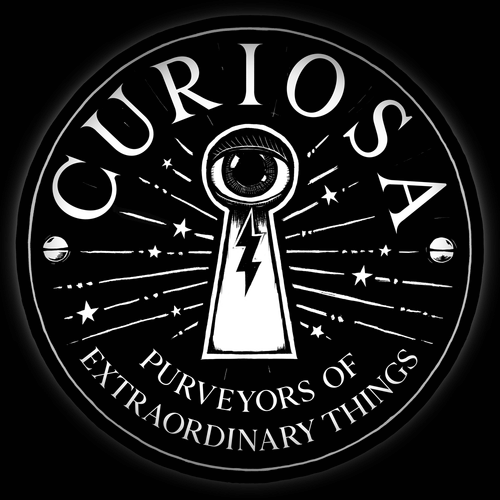Transcript of Correspondence - Nov. 22, 2019
Stephen & I just received another letter from Thelonious Grimsby who has, in his travels, uncovered pages from an important Curiosa Society document previously thought lost!
- Heather

From the Archives of the Curiosa Society. Transcript of Correspondence 22.11.19: Letter from T. Grimsby to Society Members in absentia
Dearest Society Member,
My search brought me to the cold reaches of Dare County, North Carolina, the modern day site of Roanoke, the “Lost Colony”. Many recognize this infamous location due to the strange disappearance of its inhabitants. However, what many people are not aware of is that Roanoke marked the first expansion of the Curiosa Society in the New World.
Using fragments from records from our Society archives, I was able to verify that ancestral Society Members accompanied the second attempt at this permanent English settlement in North America. Furthermore, it is my hope that they brought with them the sum of their accumulated knowledge from the Old World and plans for a future chapter of the Society in North America.
“CRO … CROATOAN”
These words were the only clues left behind by the Roanoke Colony when the English secured passage to return in 1590. Their meaning has been argued and theorized for hundreds of years and is something akin to conspiracies surrounding Bermuda Triangle or Area 51. Personally, I am inclined to agree with scholars who presume that the inhabitants had peacefully relocated to Croatoan Island and that their so-called “disappearance” can be traced to simple integration.
Thus, I found myself on the shores of Hatteras Island, where I was inexplicably drawn to the Cape Hatteras Lighthouse. Although the original lighthouse was constructed in 1802, a little over 200 years after the Lost Colony, I had an inkling that this is where I would find what I was looking for.
Circling the imposing tower, my eyes were drawn to a small dark spot on one of the lighthouse’s lower cornerstones. Upon closer inspection, I realized that the dark spot was actually a hole … a keyhole. I convinced myself that the shape couldn’t have been a mere coincidence, as our Society’s modern iconography relies heavily on similar motifs. And, excited as I was, a problem soon dawned on me … where was the key?
I scanned the immediate area, but there was nothing to see beyond trim green grass and a view of the water. Defeated, I gave the keyhole an annoyed shove and, to my surprise, it gave way under the force of my push. The keyhole stone sunk in and, as if it was the one piece holding them all together, the surrounding stones similarly began to give way until the shape of a small doorway was all that was left. Swatting at the dust and the smell of damp that the shifting stones kicked up, I peered into the darkness that extended below the lighthouse and went in.
Armed with my trusty phone-light, I discovered that what I first assumed to be a long tunnel actually gave way to a circular stone stairwell, as if the lighthouse reached as far below as it did up to the sky. The encircling stone pathway abruptly ended where it met a conspicuously preserved wooden floor. Casting my light around the room, I was disappointed to find that it was mostly empty except for what looked to be an overturned rowboat. I approached the pile of old wood and righted the vessel with ease. It was only when the dust settled that I saw it.
There, bound in dull, cracked leather was what appeared to be a collection of papers. Bringing my light closer, my heart skipped a beat when I noticed the same keyhole shape embossed on the cover. It was weathered, but there was no mistaking that shape. My excitement quickly turned to worry as, without even having to open it, I could tell that both time and the elements had taken its toll on the contents. Nevertheless, I had done it; I had found the Roanoke Declaration of the New World Curiosa Society.

I’ve sent along my findings to H— and S— who have volunteered to help restore the Roanoke Charter to its original condition as best they can. Together with the existing fragments in our possession, I’m confident that will be able to recover this piece of Curiosa Society history.
Alas, there is no rest for the curious and I find myself off to Egypt to pursue another lead. I’ve heard rumours that our Society has links to the Great Library of Alexandria, but I’ve always been somewhat skeptical of such an austere history. I might be proven wrong, however, as many signs are pointing to an artefact of great importance safeguarded by the ancient librarians. I wonder if I should buy a fedora. Ah— here comes my plane.
Yours Faithfully,
Thelonious Grimsby

